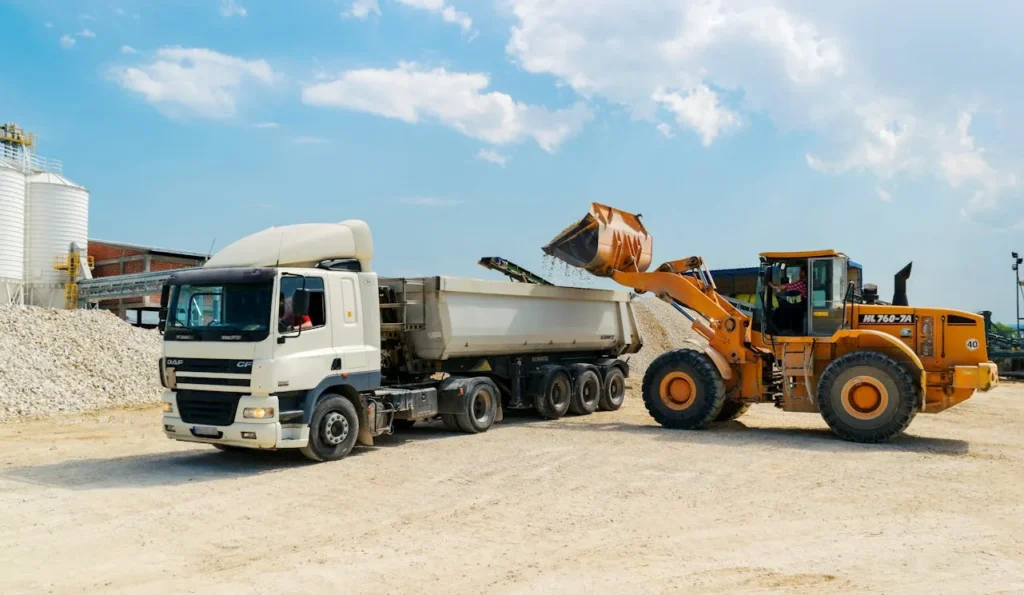
Attorney Amy Witherite Raises Alarm Over Safety Issues as Driverless Trucks Hit Georgia Highways Concerns Grow Over Autonomous Truck Testing in Georgia
With testing underway for autonomous trucks on Georgia highways, attorney Amy Witherite, a leading traffic safety expert and advocate for accident victims, is raising serious concerns about the potential dangers posed by driverless trucks. Witherite, whose law firm specializes in motor vehicle accidents, warns that these trucks may be hitting the roads prematurely, posing significant risks to public safety.
Her warning comes after reviewing Aurora Innovations’ annual report, which details numerous challenges still facing self-driving truck technology. While autonomous vehicles hold promise for improving roadway safety in the long run, Witherite believes that current testing and deployment plans are moving too fast, potentially putting Georgia motorists in harm’s way.
A Rapid Push for Autonomous Truck Deployment
The state of Georgia has recently become a hub for autonomous vehicle testing. Companies such as Kodiak Robotics, Inc. and Pilot Company have already set up a facility in Villa Rica, Georgia, to advance the development of self-driving trucks. However, Witherite emphasizes that there is a stark contrast between public relations efforts and the reality outlined in legally required corporate disclosures.
“Unlike press releases, demonstrations for journalists, or flashy YouTube videos, annual reports require full disclosure and a frank discussion of the challenges facing this new and unproven technology,” said Witherite. “We agree with Aurora Innovation that ‘solving self-driving is one of the most difficult engineering challenges of our generation.’”

Aurora Innovations, one of the companies leading the charge in autonomous trucking, openly acknowledges that the technology remains untested in many real-world scenarios, adding another layer of concern for traffic safety experts.
Key Safety and Security Risks Identified
Aurora Innovations’ annual report highlights several critical concerns about self-driving truck technology. Some of the most pressing issues include:
- Significant Technical Challenges – Self-driving trucks must navigate unpredictable real-world conditions, including poor weather, human driving errors, and unexpected road obstacles.
- Limited Operating History – The technology has not been extensively tested in all possible environments, increasing the risk of failure in unexpected scenarios.
- Cybersecurity Threats – Unauthorized control or manipulation of autonomous truck systems could result in erratic or dangerous vehicle behavior, posing a major safety risk to other motorists.
- Lack of Federal Oversight – Aurora Innovations acknowledges that there has been “relatively little mandatory federal government regulation” concerning self-driving technology, leaving a patchwork of state laws to govern autonomous truck deployment.
Regulatory Gaps Pose Additional Risks
The absence of federal safety standards for self-driving trucks adds another layer of uncertainty. Volvo Autonomous Solutions, another major player in the autonomous trucking industry, echoes these concerns:
“The U.S. federal government has not yet passed regulations specific to autonomous vehicles, and there are variations in how autonomous vehicles are managed from state to state. This causes challenges for autonomous companies ready to deploy this new technology in the real world.”
This fragmented regulatory landscape raises critical questions about whether Georgia’s roadways should serve as a testing ground for self-driving trucks, especially when human lives are at stake.
Are Georgia Roads Ready for Driverless Trucks?
Given the potential risks outlined in Aurora Innovations’ own report, Witherite urges Georgia lawmakers and transportation officials to reconsider whether self-driving trucks should be allowed on public highways at this stage.
“Based on this information, it is fair to ask whether self-driving trucks should be permitted to operate on Georgia roads in the coming months,” said Witherite. “Or should there be additional testing in an environment that does not include innocent motorists trying to get to work, school, or taking their families on vacation?”
Potential Real-World Risks and Unanswered Questions
Although self-driving technology is intended to reduce accidents caused by human error, many questions remain about how well autonomous trucks will handle real-world driving conditions. Among the key concerns:
- How will self-driving trucks react to sudden lane changes or emergency braking from human drivers?
- Can autonomous systems effectively navigate Georgia’s heavy rainfall and unpredictable weather conditions?
- What happens if a system malfunction occurs in the middle of rush hour?
- Who is held legally responsible in the event of a collision involving a self-driving truck?
- How can we prevent cyberattacks that could hijack control of autonomous vehicles?
The Need for Stricter Safety Measures and Oversight
Witherite argues that Georgia should not allow autonomous trucks on highways until comprehensive safety measures, increased oversight, and extensive testing are implemented.
“This technology will eventually have the potential to make driving safer, but current plans to put these trucks on the road appear premature,” she warns.
Instead, Witherite suggests that the industry should focus on controlled testing environments, such as closed-loop test tracks or designated autonomous vehicle corridors, before integrating self-driving trucks into high-traffic public roads.
Legal Implications and How the Witherite Law Group Can Help
As autonomous truck technology advances, the legal landscape is also shifting. Who is liable in an accident involving a driverless truck? Is it the manufacturer, the software developer, the logistics company, or the truck owner? These are complex legal questions that need clear answers before self-driving trucks become a regular sight on Georgia highways.
The Witherite Law Group, with its extensive experience in vehicle accident cases, is committed to protecting the rights of individuals involved in crashes with autonomous vehicles.
The firm specializes in:
- Legal representation for victims of accidents involving self-driving vehicles
- Investigating liability in autonomous truck crashes
- Holding technology and logistics companies accountable for safety failures
- Ensuring victims receive the compensation they deserve
What Should Georgia Drivers Do?
With driverless truck technology still in its infancy, motorists in Georgia should stay informed about developments in autonomous vehicle testing and regulations. If you or a loved one is involved in an accident with a self-driving truck, it’s crucial to seek legal guidance to understand your rights.
For more information, or to schedule a consultation, visit www.witheritelaw.com.
Final Thoughts: The Road Ahead
While self-driving technology may one day revolutionize road safety, the push to deploy autonomous trucks without sufficient testing, regulation, or oversight is a serious concern.
As companies continue testing in Georgia, safety advocates like Amy Witherite are urging policymakers to prioritize public safety over rapid commercial expansion. Until these vehicles can prove their reliability in all conditions, Georgia roads should not be used as experimental testing grounds at the expense of innocent motorists.
Stay informed, stay cautious, and demand accountability for road safety.

